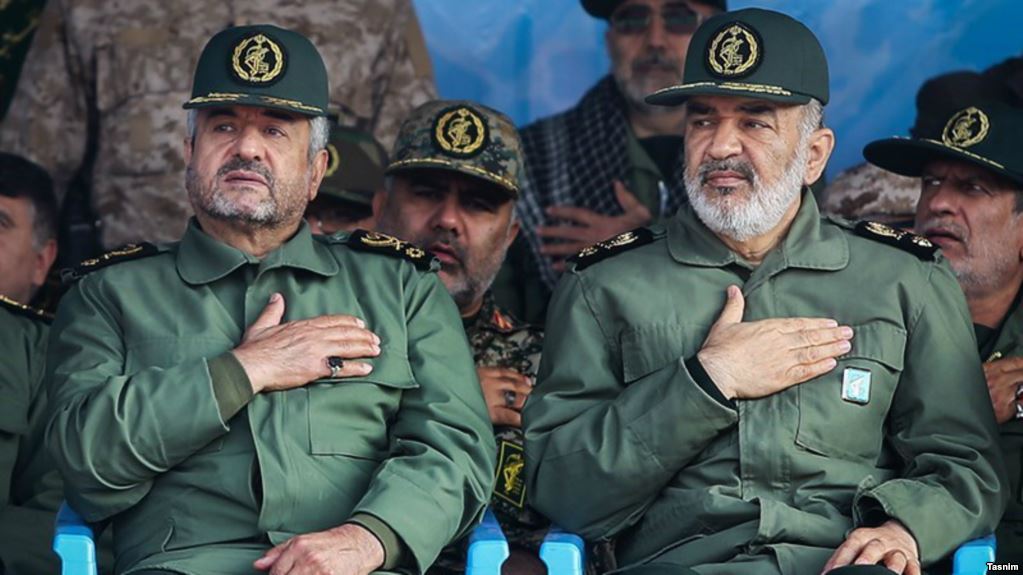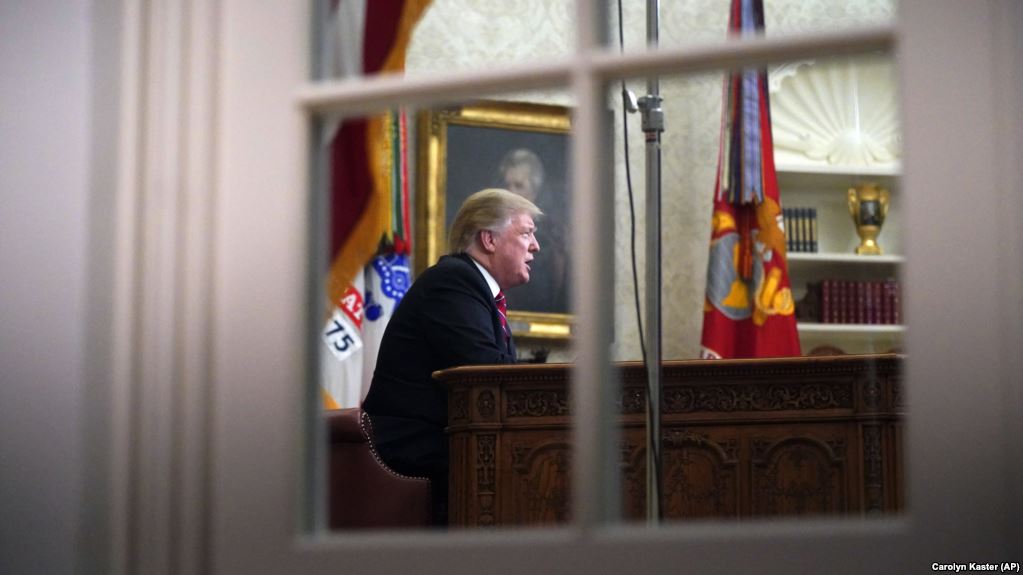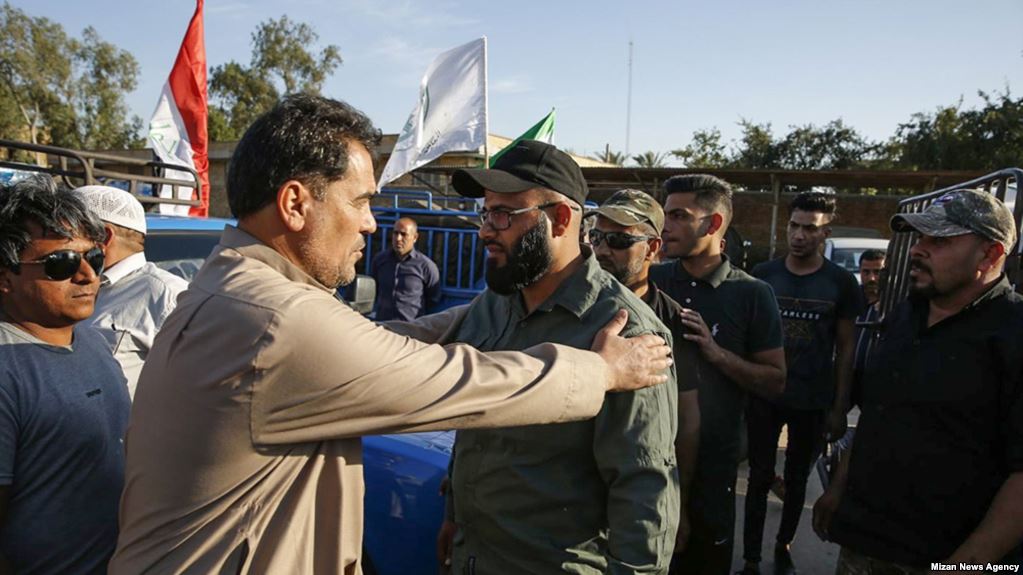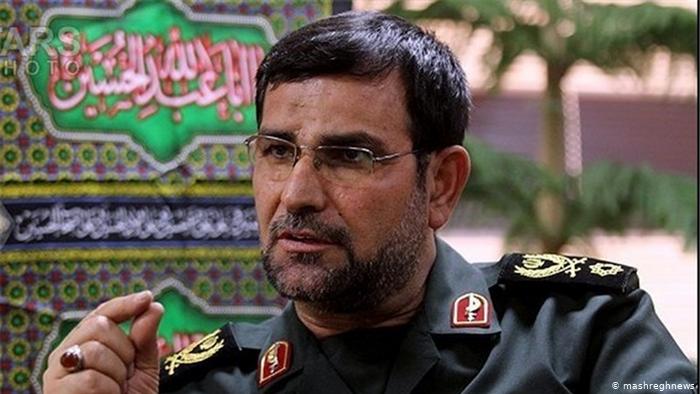
Messages and outcomes of the new US decision about Iran’s oil
The editorial of Mardomsalari newspaper focuses on the recent US decision not to extend its waivers to the countries that were previously allowed to buy Iran’s oil, asking what will be the implications and consequences for Iran.
Donald Trump’s decision to impose sanctions on Iran’s oil was announced last year, and it became operational since November. Nevertheless, among the buyers of Iran’s oil, several countries were exempted from the sanctions, so they could find alternatives for Iran’s oil within a certain period of time. The US decision not to extend the exemption for these countries means that no country can buy Iran’s oil. However, can this decision be implemented?
Naturally, buyers of Iran’s oil follow their own economic logic, and are willing to buy Iran’s oil. In recent months, the United States has tried to provide a guarantee to these buyers that there is alternative oil for them to purchase. Saudi Arabia and the Emirates are the United State’s reliable partners in this regard and have pledged to replace Iran’s oil.
It seems that the United States is determined to stop these countries from importing Iran’s oil; naturally, if buyers of Iran’s oil can find alternatives to its oil, they would prefer to buy that, instead of being pressured by the United States.
It is still early to say if Iran can be fully prevented from selling oil. Nevertheless, even if Iran continues to sell oil, receiving its oil revenues and transferring them to Iran will be difficult. That is because Europe’s financial channel is not operative, and the known ways to transfer oil revenues have been blocked. Iran’s only way to keep its buyers is to give them discounts and incentives so they continue to buy its oil. The main problem, which is transferring oil revenues, will remain.
Perhaps, the most important message of the new US decision is the seriousness of Donald Trump’s administration in putting pressure on Iran. Trump’s administration must have been aware of the high risk of this decision, which indicates that it is has objectives that go beyond putting economic pressure on Iran.
Mardomsalari – April 24
Blind spot in Iran’s oil economy
The editorial of Jahan Sanat mulls over how reliance on oil has made Iran’s single-product economy an easy target.
Eventually the economic siege is getting tighter around Iran, as regional and international actors can easily target its single-product economy, which relies on oil. It wasn’t far from imagination that the US wouldn’t extend the waivers for some countries to buy Iran’s oil. As a result, roughly one million barrels per day (bpd) of Iranian oil that were exported in recent months will be removed from the market.
Meanwhile, neighboring countries like Saudi Arabia and the Emirates have promised to replace this amount of oil. Many experts believe that it is possible to replace Iran’s oil exports.
What have Iranian politicians and statesmen been doing all these years? We have witnessed nothing but unleashed corruption in the oil, gas, and petrochemical sectors. Apart from what will happen to the oil market, how come we have never seriously and practically tried to reform the economic and industrial infrastructure of the country so we wouldn’t be so much dependent on oil?
The five-year development plans in Iran have been ignored, and the oil money has been spent on meaningless, and populist shows. The oil money hasn’t even been spent on maintaining the oil industry. These days, Khuzestan is more like a time bomb. The oil facilities are 50 years old and they have been exhausted for years.
Iran should have prepared itself for these days. What is happening today is the outcome of many mistakes that have taken place over the years.
Jahan Sanat – April 23
Flood damages equal to damages of financial and credit institutes
The editorial of Setareh Sobh daily focuses on the cost of the recent floods, as well as on Iran’s financial and credit institutes, particularly for its economy and government.
Iran’s geographical position exposes it to natural disasters. Such disasters –floods, earthquakes, dust, locust attacks – inflict harm on the people as well as on the government. Throughout time, countries exposed to natural disasters have been able to overcome them. For example, Japan, after the World War II, started constructing buildings resistant to magnitude 8 earthquakes. It has also been able to counter floods by digging deep wells. As a result, in case there is a flood or an earthquake in Japan, casualties and damages are manageable by the government.
However, in Iran, over the last half a century, science and technology have not been helpful in overcoming natural disasters. As a result, damages are ‘astronomical’— and difficult to compensate. On the other hand, mismanagement in running the country has also resulted in damages that must be eventually compensated by the government.
The obvious example is that of credit and financial institutes. Even though the government claims that it concluded the case of fraud in these institutes by paying out 35,000 billion tomans, the evidences show that the damages caused by such institutes and even private banks are not to be over soon.
Such credit and financial institutes have entered Iran’s economy since 2005 during the 9th and 10th governments, damaging the economy and the people directly. Some experts hold that these institutes have increased the inflation rate by 20%. According to the Iranian President Hassan Rouhani, the government had to pay 35,000 billion tomans to those who were defrauded by such institutes.
If we add the damages created by the floods – estimated at 35,000 billion tomans – to the damages caused by credit and financial institutes – estimated also at 35,000 billion tomans – the total will be 70,000 billion tomans. It means that because of these two incidents, 70,000 billion tomans have been added to the country’s liquidity.
Both of these costly incidents have been due to mismanagement of the parliament and the Iranian government.
Setareh Sobh – April 20

New IRGC commander

The Iranian Supreme Leader Ali Khamenei appointed Hossein Salami as the new commander of the IRGC.
Hossein Salami is considered as one of the most radical commanders of this force, and he has frequently threatened to destroy Israel, stressing that the Islamic Republic’s strategy is to ‘wipe out’ Israel from the political geography of the world. He has also threatened Europe that if they insist on stopping Iran’s missile program, then ‘we have to take a strategic leap’.
Analysts hold that the reasons for appointing Hossein Salami as the IRGC commander include his anti-American character – particularly after the US decision to designate the IRGC as a terrorist group – and his firm belief in the IRGC missile capability. Salami is also known for his ranting speeches against America, Israel, Saudi Arabia, and recently Europe. In recent years, no senior commanders of the IRGC have threatened America and Israel on TV programs and in their speeches as much as Salami.
Such rantings seem to please Iran’s Supreme Leader Ali Khamenei, particularly at a time when he has recently stressed that anything that makes the enemy angry is right and good.
On the other hand, while challenging America is the main concern of the Islamic Republic in its foreign policy, there is no doubt that popular uprisings in protest against deteriorating economic conditions are of great concern to the Islamic Republic in domestic policy. Here, too, the views of the new commander of the IRGC are close to the Supreme Leader.
Even though Hossein Salami has made a few remarks about domestic policy, these remarks are considered to be very harsh and radical. With regard to the 2009 popular protests against the rigged presidential elections, he urged that ‘the war was taken to the streets’ calling it more ‘dangerous’ than the Iran-Iraq war.
In his own inaugural ceremony, Hossein Salami emphasized on extending the authority of the IRGC from the region to the world, so there is “no safe place for the enemy in the world”.
Radio Farda
The US not extending waivers for the purchase of Iran’s oil

The White House issued a statement announcing that the exemption to purchase Iran’s oil will end on May 2, and it will not be extended. According to the statement, Donald Trump has decided not to extend the exemption for some countries from the sanctions on purchasing Iran’s oil.
The statement adds that the United States, Saudi Arabia, and the UAE have reached an agreement to ensure that, along with pushing Iran’s oil out of the market, the global demand for oil will be met.
The statement urges that Trump’s administration and its allies are determined to sustain the maximum pressure campaign against Iran to put an end to its destabilizing activities that threaten the United States, its partners, its allies, and the security in the Middle East.
The US Secretary of State Mike Pompeo, in a press conference, said that to create maximum pressure on Iranian regime, the United States will not consider any exception for buyers of Iran’s oil. He emphasized that the level of supply in the global market will remain stable, adding that the goal is simple: depriving a rogue regime which has used the oil revenue in the past 4 decades to destabilize the Middle East, while encouraging Iran to act like an ordinary country.
According to the US Secretary of State, before the US sanctions, Iran’s revenue from exporting oil exceeded $50 billion, but based on the US State Department’s estimate, the Iranian regime has lost $10 billion of its revenue so far.
The Trump administration exited the nuclear deal last year and re-imposed sanctions against Tehran that included its oil, banking, and shipping sectors. After the return of sanctions, the US gave waivers to eight countries for six months so they could continue to buy Iran’s oil for a limited time. These countries were China, Turkey, India, South Korea, Japan, Taiwan, Italy and Greece.
Meanwhile, according to the European Economic Center, 28 EU member countries, during January and February, have ceased fully to purchase oil from Iran, and reduced their import from this country to one sixteenth, compared to the same period last year.
Radio Farda
RFI
MPs criticize the presence of foreign military forces in Iranian flood-hit areas

Two parliamentary members criticized the presence of foreign military forces in the areas inundated by flood, stressing that foreign militaries need to have authorization from Iran’s government and parliament in order to do so.
Abdolkarim Hosseinzadeh, Deputy Head of the “Reformist” Omid Fraction in parliament, said the presence of foreign forces without any authorization is considered as a violation of Iran’s constitution. “Weren’t there enough forces in the army and the IRGC?” asked Hosseinzadeh.
Moreover, Bahram Parsaei, a lawmaker representing Shiraz, noted that the presence of foreign military forces is “not acceptable” even if for providing relief aid.
“If they are deployed in the country as militaries, it is a violation of article 146 of the constitution,” held Parsaei, “and if they want to act in the form of cooperation between two countries, an agreement should be passed by the parliament and signed by the president, according to article 125 of the constitution.”
In the same vein, Alireza Rahimi, a “reformist” lawmaker, asked for a report from the Interior Minister Abolreza Rahmani Fazli in this regard. He also demanded that the Foreign Minister Mohammad Javad Zarif provides an explanation about this issue.
In the meantime, the IRGC Navy Commander Alireza Tangsiri said those who oppose the deployment of Iraqi militia in flood-hit areas in Khuzestan province are “either ignorant or tied to foreigners.”
He added commanders of Hashd al-Shaabi fought alongside IRGC forces during the “imposed war”, pointing to the Iran-Iraq war.
According to Tangsiri, these foreign forces have also played a key role in providing help to the flood-stricken people in the Khuzestan province.
Last week, convoys of armed militias, including Al-Nojaba, Hashd al-Shaabi, and Fatemiyoun forces, arrived in Iran to provide flood relief to people in the Khuzestan and Lorestan provinces.
The presence of such forces, however, has provoked waves of criticism from political activists and dissidents of the Islamic Republic.
Radio Farda
Entekhab
The IRGC Navy threatens to close the Strait of Hormuz

Admiral Alireza Tangsiri, commander of the IRGC Navy, threatened that the IRGC will close the Strait of Hormuz if Iran is not allowed to use it. The IRGC Navy commander said: “the Strait of Hormuz, according to international law, is a marine waterway, and if we are prevented from using it, we will close it.”
Tangsiri has also said that in case of any threats, there will be retaliatory measures in defending Iran’s waters.
Recently the United States designated the entire IRGC as a terrorist group – a measure that has increased the chance of possible confrontation between US military and IRGC forces in the Gulf.
This is not the first time Tangsiri has threatened to close the Strait of Hormuz. Previously, he had said that if Iran’s oil exports were cut to zero, the Strait of Hormuz would be closed.
The new threat was made on the same day that the US administration announced not extending waivers to those countries buying Iran’s oil.
Since the Iran-Iraq war in the 1980s, IRGC commanders and officials of the Islamic Republic have reiterated the threat to close the Strait of Hormuz, but the threat has never been carried out.
Deutche Welle
Radio Farda
